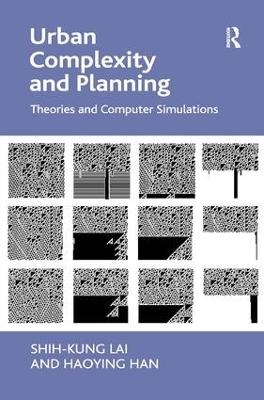
Urban Complexity and Planning
Routledge (Verlag)
978-0-7546-7918-9 (ISBN)
Dr Shih-Kung Lai is a lecturer in Real Estate and Built Environment at the National Taipei University, Taiwan, R. O. C. and Haoying Han is an Associate Professor in the Department of Land Management, Zhejiang University, China.
Contents: Foreword, Michael Batty; Foreword, Lewis D. Hopkins; Preface; From organized anarchy to controlled structure: effects of planning on the garbage-can decision processes; Effects of planning on the garbage-can decision processes: a reformulation and extension; A spatial garbage-can model; An agent-based approach to comparing institutional and spatial changes in the self-organizing city; On traction rules of complex structures in one-dimensional cellular automata: some implications for urban change; Applying cellular automata to simulate spatial game interactions to investigate effects of planning; Planning for city safety and creativity: two metaphors; Emergent macro-structures of path-dependent location adoptions processes of firms; The formation of urban settlement systems: computer experiments and mathematical proofs of the increasing-returns approach to power law; Power law distribution of human settlements: an explanation based on increasing returns; A preliminary exploration on self-organized criticality of urban complex spatial systems; Planning in complex spatial and temporal systems: a simulation framework; Decision network: a planning tool for making multiple, linked decisions; Effectiveness of plans in the face of complexity; Index.
| Erscheint lt. Verlag | 28.3.2014 |
|---|---|
| Verlagsort | London |
| Sprache | englisch |
| Maße | 156 x 234 mm |
| Gewicht | 657 g |
| Themenwelt | Naturwissenschaften ► Biologie ► Ökologie / Naturschutz |
| Naturwissenschaften ► Geowissenschaften ► Geografie / Kartografie | |
| Sozialwissenschaften ► Soziologie | |
| Technik ► Architektur | |
| ISBN-10 | 0-7546-7918-7 / 0754679187 |
| ISBN-13 | 978-0-7546-7918-9 / 9780754679189 |
| Zustand | Neuware |
| Haben Sie eine Frage zum Produkt? |
aus dem Bereich


